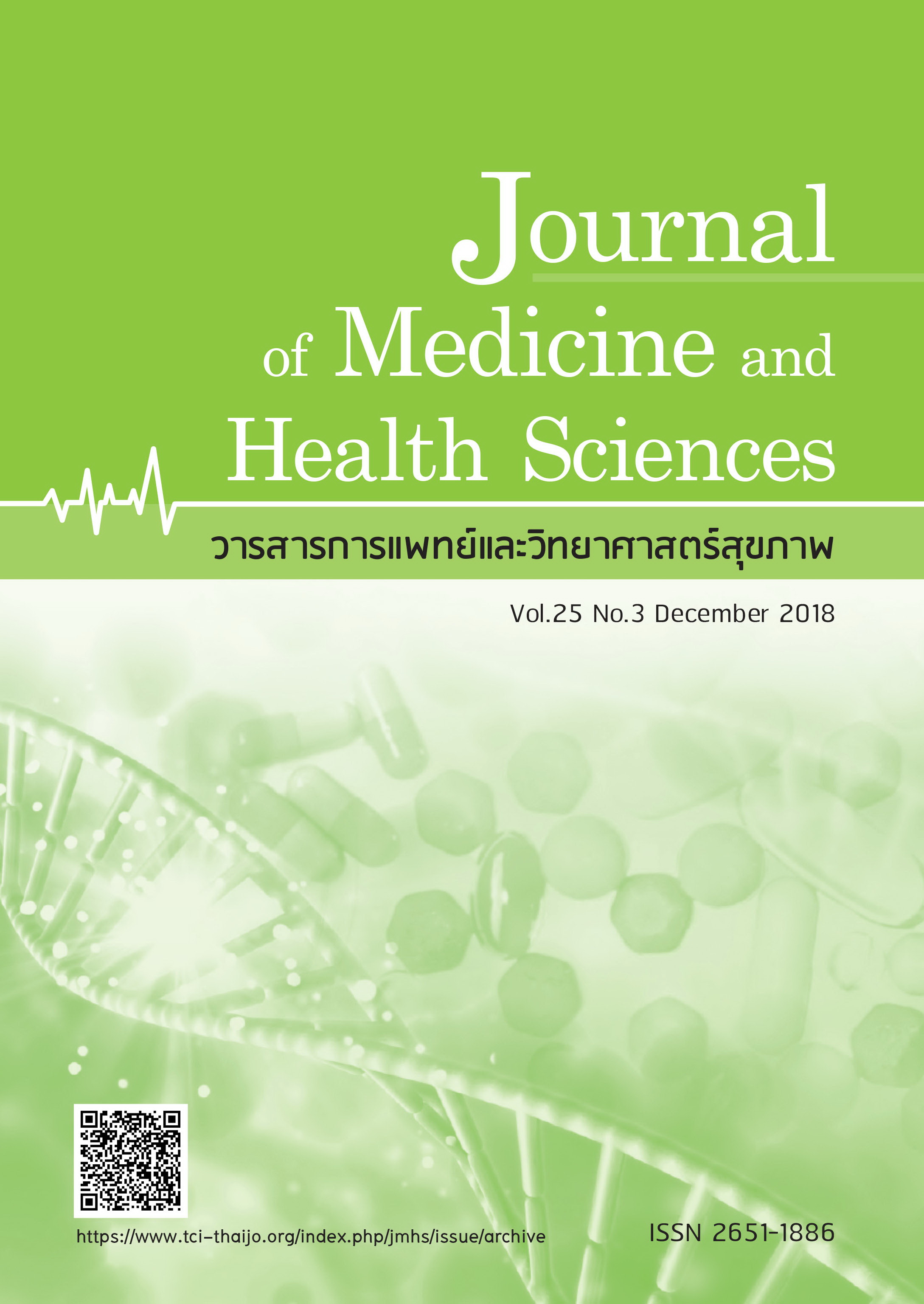Efficacy of antidiarrheal Thai medicinal plants in chloride channel inhibition
Keywords:
antidiarrheal, Thai medicinal plants, CFTR CI− channelAbstract
Antidiarrheal Thai medicinal plants, namely Azadirachta indica Valeton., Punica
granatum Linn., Sesbania grandiflora Linn., Terminalia chebula Retz., and Curcuma longa
Linn. were investigated in the chloride channel inhibition model using Fisher rat thyroid cells
stably expressing human CFTR chloride channel. The results demonstrated that A. indica, P.
granatum, S. grandiflora and T. chebula extracts caused inhibition of CFTR-mediated chloride
current at low dose starting from 50, 50, 100 and 200 µg/ml, respectively. This showed that
these extracts’ antidiarrheal activities stemmed partly from their CFTR chloride channel
inhibition. C. longa aqueous solution showed an inhibitory effect at 200 µg/ml but its ethanolic
extract showed chloride flux stimulating effect at 10 µg/ml. Extracts from A. indica, P. granatum,
S. grandiflora were tested for their phytochemical groups using thin layer chromatography. All
three extracts showed tannin. P. granatum peel with a low physiological dose is an existing
ingredient in some beverages, thus it is safe to recommend P. granatum peel tea as a primary
care medical food to treat acute secretory diarrhea.



